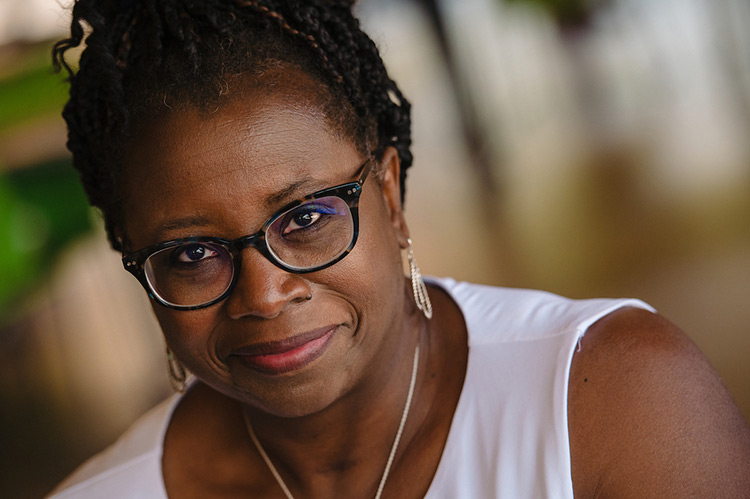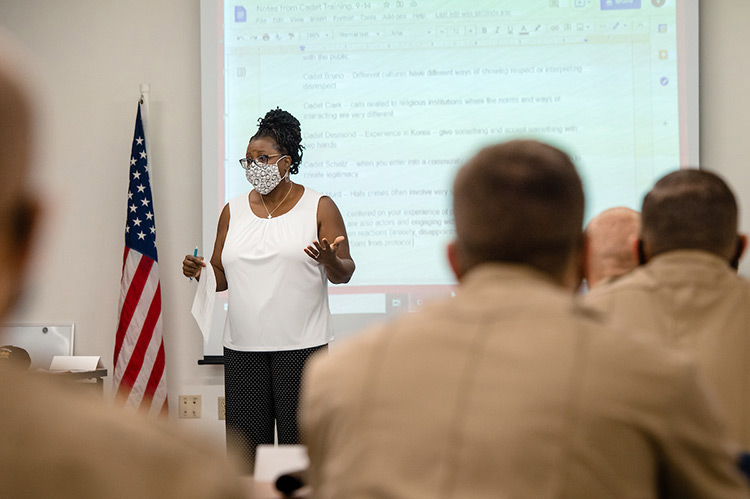
An English professor helps police cadets explore the human side of policing using methods from the humanities. By introducing novels about Black detectives to police cadets in training, Veronica Watson opens up conversations about race, fairness, and policing practices.
An English professor helps police cadets explore the human side of policing using methods from the humanities.
"When we see a situation like George Floyd, with an officer kneeling on someone's neck and other officers standing around watching that, what I've always said is 'that's not a failure of policing, that's a failure of humanity'."
Through her initiative, Humanities Training in Law Enforcement, Veronica Watson introduces novels about Black detectives into police cadet training to open up conversations about race, fairness, and policing practices.
"When we see a situation like George Floyd, with an officer kneeling on someone's neck and other officers standing around watching that, what I've always said is 'that's not a failure of policing, that's a failure of humanity,'" Watson said.
Through her HTLE approach, she hopes to make a difference. She and her team at Indiana University of Pennsylvania carefully select books that illustrate situations the cadets might face, often showing more than one approach.
"The detective became the place where we could start the cadets on a conversation," she said. "So, what is this detective doing that might be a model for how you could police? These became very important, kind of touchstone moments for us, to say 'what is it that's building legitimacy with this character and what is it that's working against it'?"


Police cadets at the IUP Criminal Justice Training Center are the first to take the HTLE classes, and Watson has had positive feedback about their experience with it.
"The detective became the place where we could start the cadets on a conversation. So, what is this detective doing that might be a model for how you could police? These became very important, kind of touchstone moments for us, to say 'what is it that's building legitimacy with this character and what is it that's working against it'?"
The cadets bring their thoughts to the discussion, sometimes writing answers that Watson reviews and uses to launch conversations on current topics without naming the writer. The cadets also sometimes work in small groups to share ideas with each other before presenting their answers.
Through the training, Watson said officers think about what it means to engage with another human being while doing their job, and how to do it with more "equity, fairness, and respect for the individual."